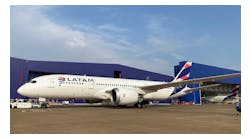In November of last year a French appeals court overturned the involuntary manslaughter conviction of Continental Airlines in the Concorde crash disaster of 2000. In addition it also overturned the conviction of a Continental mechanic who had been involved with the repair of part of a Continental DC-10.
The part came loose, fell on the runway and was hit by the Concorde on its takeoff. French aviation authorities concluded that this caused the Concorde to catch fire and crash. The court found that the piece of metal left on the runway by the Continental aircraft led to the events that caused the crash. They said however that the criminal manslaughter charges were unjustified. Continental was required to pay a civil fine of $1.3 million.
This was of course France … which, like many other European countries, treats all transportation accidents as a crime as well as a civil accident until proven otherwise. France is one of a few countries that routinely seeks criminal indictments in transportation accidents, regardless of whether or not there is evidence of criminal intent or negligence.
Most airlines and in particular ours, the NTSB, and the aviation safety community were alarmed at the indictments in this case. They all maintained that the threat of prosecution in accident cases discourages witnesses from providing information to the crash investigators. Well, what else is new? Would you give out information that might contribute to your criminal indictment? Apparently in France and other countries the element of specific intent is not necessary for guilt. As many have said … human mistake or failure is clearly not a crime.
Air France was not found at fault in any way, but it did settle all the passengers’ claims. It was not accused of any wrongdoing. It was compensated by Continental for damage to its image. It joined the lawsuit in order to recover money damages from Continental and it did. It settled claims by the passengers for $150 million, roughly equal to the amount of the so-called fine paid by Continental. The fatal crash was the only one ever sustained by Concorde. Flights were halted in 2003.
Valujet
Here in the USA, the case that is presumed to be the progeny and premier example of federal and state joint criminal investigation in an accident case is the prosecution of SabreTech Inc., and three of its employees after the May 1995 crash of the Valujet DC-9 in the Florida Everglades. SabreTech was Valujet's contract maintenance provider, and their employees packaged and labeled expired chemical oxygen generators and returned them to Valujet for shipment and further repair. NTSB concluded that these canisters ignited shortly after takeoff and were the cause of the crash.
This was the first large criminal investigation into the facts and circumstances of a major U.S. aircraft disaster. The State of Florida decided to join the feds in the prosecution by leveling felony murder and manslaughter charges against SabreTech on the same day that the federal government brought a 24-count indictment stating the charges against SabreTech and three of its employees for conspiring to falsify maintenance records, violating haz-mat regulations and unlawfully placing destructive devices aboard a commercial aircraft.
The defendants were convicted in a trial but the convictions of SabreTech and its employees in the trial court were vacated on appeal. The appellate court said that the repair people made mistakes, but they did not commit crimes. Further, the court said that they did not intend to kill the victims of the accident. Fortunately, our criminal justice system still requires a specific intent to do harm. It was a clear slap in the face of the criminal prosecutors.
The fear that most in the aviation safety investigation field have is that as time goes on the trend toward criminal investigations in aircraft accidents continues to become a routine part of the process. Many feel that this will direct more effort toward the criminal investigation of the accident rather than finding of the probable cause of the accident.
The U.S. Attorney in Florida, after the Valujet case, stated that criminal prosecution of aviation professionals after an accident would be a top priority of his administration. We can only wonder where he is on the subject today?
Payne Stewart case
The third case we look at is another Florida case of note. In April of 2000, the FBI and local police and state officers raided the premises of Sunjet Aviation Inc. This was after one of Sunjet's Learjets crashed apparently as a result of the emergency oxygen system not working when all aboard died as a result of oxygen deprivation on pressurization failure.
Payne Stewart, a prominent pro golfer, was killed along with the crew and other passengers when the aircraft , on autopilot, ran out of fuel and crashed in an open field.
On entering the Sunjet facility at the Sanford, FL, airport, the officers gathered up all the operating records and logs of all the aircraft on site, and seized other property including computers. The employees were frightened and intimidated and the affair was instrumental in the shutdown of the business. Here again the federal authorities and the state of Florida joined forces to gather evidence to prosecute the business and some of the employees. Since this was a high profile crash, the news media and the federal and state officers had a field day of notoriety over the whole sordid affair.
Both of the cases resulted in no convictions and the cases were subsequently dismissed. The whole matter was slowly reduced to an FAA enforcement action for minor regulatory violations.
Again, a totally useless criminal proceeding that resulted in destroying a going business and upsetting the lives of many people. In addition, the finding of the probable cause of the accident through a secure investigation was delayed and impeded by the continuing presence of law enforcement on the scene threatening witnesses and generally delaying the investigative process to determine the cause of the accident.
Grants of immunity
The threat of criminal convictions for what are nothing but honest mistakes by professional pilots, mechanics, and others does not serve to produce cooperation in finding out the causes of accidents. The result is that nobody wants to talk and provide information. Their lawyers would clearly suggest no response to any questions.
When accident investigators interview people involved after an accident, the lawyers would take over and prevent their clients from saying anything. This procedure has to change if any progress in accident investigation is to produce useful results. The presence of the threat of criminal investigation after an accident must be kept at a distance and the people involved must be granted some sort of immunity from prosecution for their statements regarding the accident.
Military rules
The U.S. Air Force has led the way in aircraft accident investigation by providing for the nondisclosure of witness statements so that they may not be used for any disciplinary or criminal actions, or any other administrative proceedings. There is a logical exception for false testimony or investigative misconduct, what ever that might be. Also they may be releasable to comply with a valid court order in a separate, unrelated criminal trial. The Air Force has relied on their safety privilege to withhold the release of its accident reports to the general public. This privilege continues to be a vital part of the military safety program and allows for open and unfettered statements to safety officers.
When one is promised that information provided will not be released or used against him or her, there is usually a sense of duty to be open and detailed about statements to investigative people. In the cases involving military contractors or other personnel, the courts have consistently upheld the confidentiality of witness statements provided to safety investigators. (The Machin privilege … Machin v. Zuckert 316 F2nd, 1963). However, in October of 2000, the Department of Defense did open the door slightly when it revised its order to allow the release of safety information only under stringent exceptional circumstances (after 9/11). These would include national security or other compelling reasons certified by the Department of Defense Secretary involved.
FAA grants of immunity
Although rarely given, the FAA has authority to grant immunity from administrative action to witnesses in accident cases when it believes it will aid in finding out the cause of an accident. In addition, the FAA has the authority to grant immunity in criminal cases to a witness when the U.S. Attorney General gives approval.
For years the Aviation Safety Reporting Program (ASRP) has provided very limited immunity from administrative sanctions to pilots and other certificated persons if a report is timely filed after an accident or other event. The FAA wants the reporter to bring to their attention facts that might prevent future accidents. However, there is no immunity provided for criminal actions, lack of qualifications, or intentional actions. An ASRP report should however always be filed under all circumstances where there is a threat of administrative enforcement action, even if late. It can’t hurt and may help.
The FAA has also provided several other programs that provide some protection to the provider of information regarding aviation safety mostly in the air carrier and maintenance fields. One is called Flight Operations Quality Assurance (FOQA) and the other is called the Aviation Safety Action Program (ASAP) (AC 120-66).
Under FOQA, air carriers routinely provide data from on board recorders to the FAA. This is designed to enhance their operational safety, training effectiveness, procedures, maintenance, engineering, and ATC procedures. Analysis of this data is designed to detect unsafe practices or operating procedures at an early point so as to allow timely intervention to prevent accidents. This program has been marginally successful in providing immunity protection from administrative action. There is no witness immunity provided in criminal investigations in the statute but it could be granted in certain cases. Since this is a voluntary program some carriers do not participate for fear of divulging proprietary information to competitors.
ASAP provides employees and participating air carriers and repair stations with immunity from any actions when they report safety issues and or events that are considered dangerous and could lead to accidents. The report contents cannot be used for any purpose in any enforcement action. There is no provision for criminal case witness immunity.
The CAS program cited in Part 121.373 and 135.431 which is required by the regulation is a self-reporting process that has been in effect for some time. However, it does not provide any meaningful protection from enforcement or witness criminal prosecution.
Another self-disclosure program is covered under AC 00-58. This program is designed to promote self-disclosure of maintenance safety discrepancies in return for immunity from administrative enforcement action. There is no provision for witness immunity in criminal investigations.
It is not clear just how much immunity is available, if any, will be provided for in the newly popular safety management system proposal as published in the Advance Notice of Proposed Rulemaking by FAA. (Federal Register Vol/ 74 No, 140). Many feel that this new program is just another safety program that will go the way of ATOS and other reporting programs that have come and gone after failing to provide the desired safety improvements.
Blanket immunity needed
Many in the safety community feel that a Congressional mandate should be established that will provide blanket immunity to witnesses involved in all aircraft accident investigations. So far there does not appear to be any action on this in the Congress.
Stephen P. Prentice is an attorney with an Airframe and Powerplant certificate, is an ATP rated pilot, and is a USAF veteran. E-mail: [email protected].

